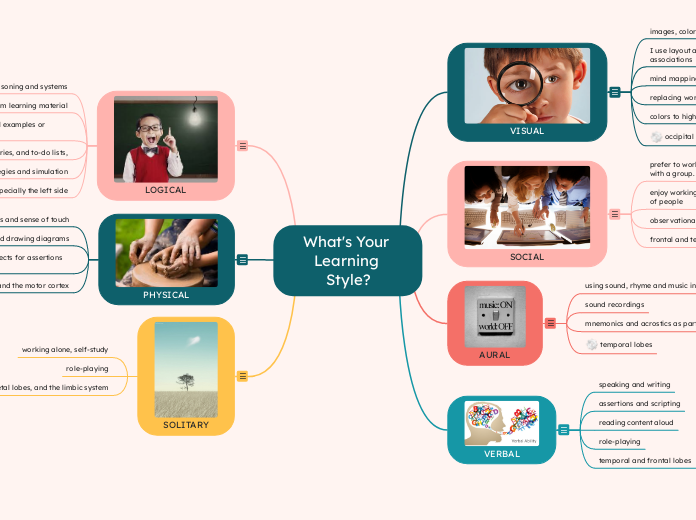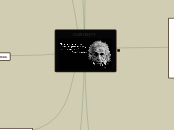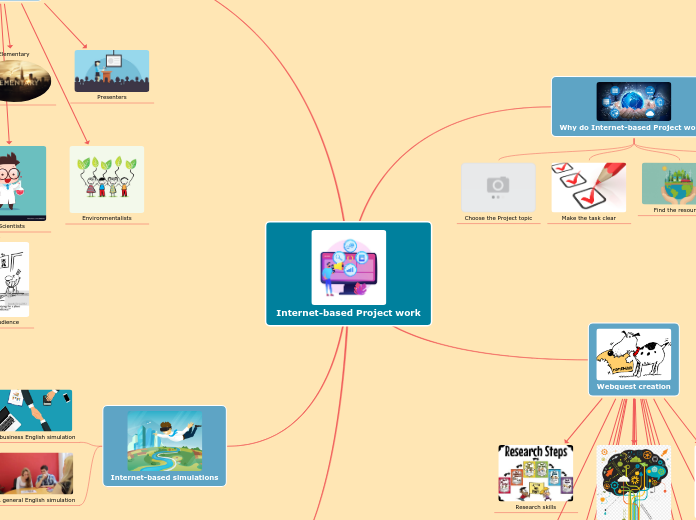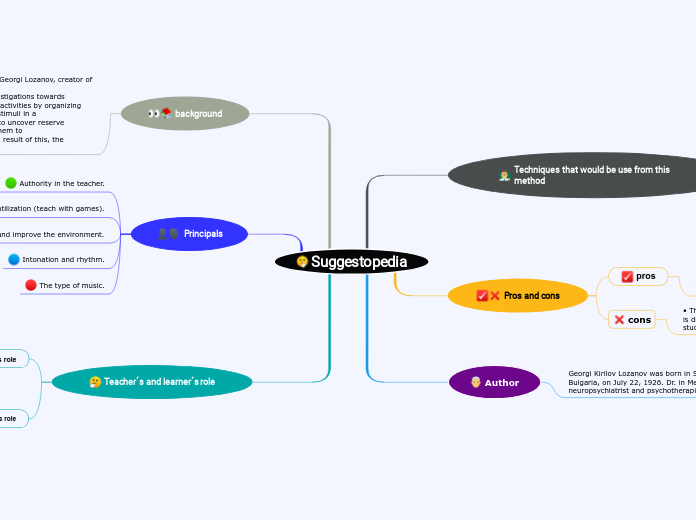What's Your Learning
Style?
SOLITARY
Here are some other phrases you may also use:
- I'd like some time to think it over.
- This is what I think or feel about that.
- I'd like to get away from everyone for a while.
- I'll get back to you on that.
frontal and parietal lobes, and the limbic system
working alone, self-study
PHYSICAL
You may tend to use phrases like these:
- That feels right to me.
- I can't get a grip on this.
- Stay in touch.
- Get in touch with
- That doesn't sit right with me.
- I have good feelings about this.
- My gut is telling me
- I follow your drift.
cerebellum and the motor cortex
using physical feelings and objects for assertions and scripting
writing and drawing diagrams
using your body, hands and sense of touch
LOGICAL
If you are a logical learner, you may use phrases like these:
- That's logical.
- Follow the process, procedure, or rules.
- There's no pattern to this.
- Let's make a list.
- We can work it out.
- Quantify it, or prove it!
parietal lobes, especially the left side
enjoy using strategies and simulation
like creating agendas, itineraries, and to-do lists,
support your points with logical examples or statistics
extracting key points from learning material
using logic, reasoning and systems
VERBAL
You may tend to use phrases like these:
- Tell me word for word.
- Let's talk later.
- The word you're looking for is
- I hear you but I'm not sure I agree.
- Let me spell it out for you.
- In other words
temporal and frontal lobes
role-playing
reading content aloud
assertions and scripting
speaking and writing
AURAL
If you are an aural learner, you may use these phrases:
- That sounds about right.
- That rings a bell.
- It's coming through loud and clear.
- Tune in to what I'm saying.
- Clear as a bell.
- That's music to my ears.
temporal lobes
mnemonics and acrostics as part of songs
sound recordings
using sound, rhyme and music in your learning
SOCIAL
If you are a social learner, here are some other phrases you may also use:
- Let's work together on this.
- We can work it out.
- Tell me what you are thinking.Help me understand this.
- Let's pull some people together to discuss.
- Let's explore our options.
frontal and temporal lobes
observational learning or modeling
symbolic
verbal instruction
live model
enjoy working with a 'clicking' or synergistic group of people
prefer to work through issues, ideas and problems with a group.
VISUAL
If you are a visual learner, you may tend to use phrases like these:
- Let's look at it differently.
- See how this works for you.
- I can't quite picture it.
- Let's draw a diagram or map.
- I'd like to get a different perspective.
- I never forget a face.
occipital and parietal lobes
colors to highlight important concepts
replacing words with images
mind mapping
I use layout and spatial organization to make associations
images, colors, shapes









